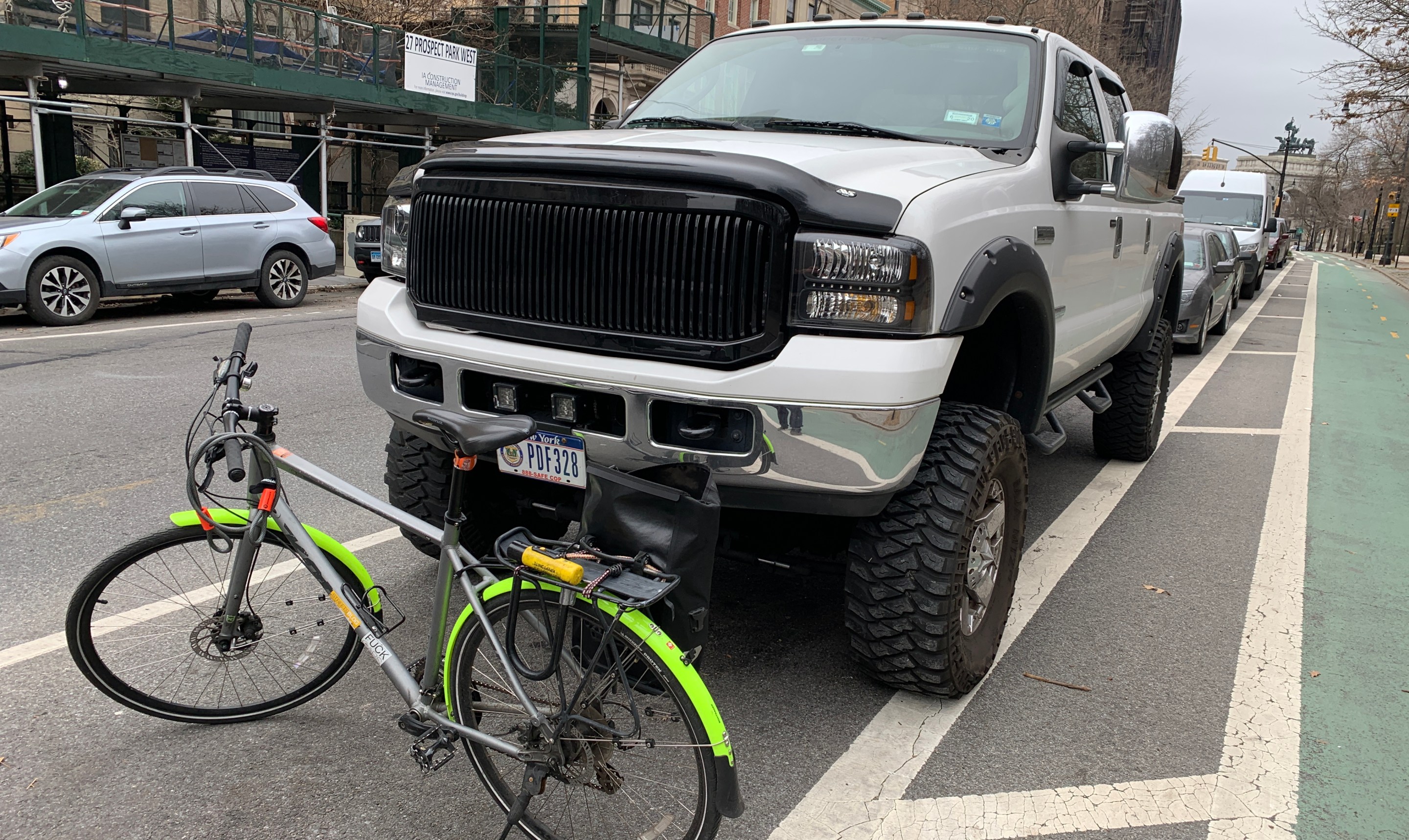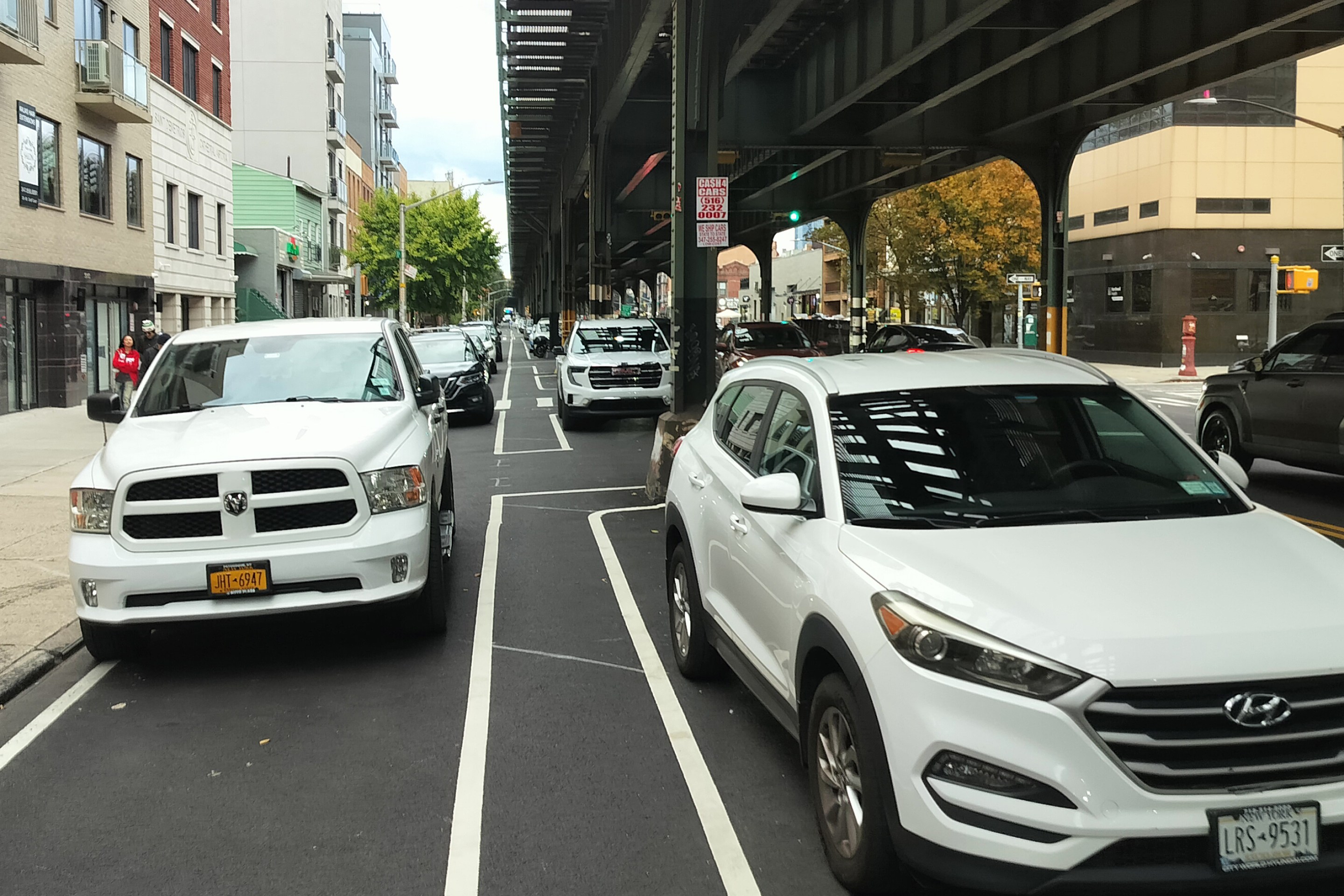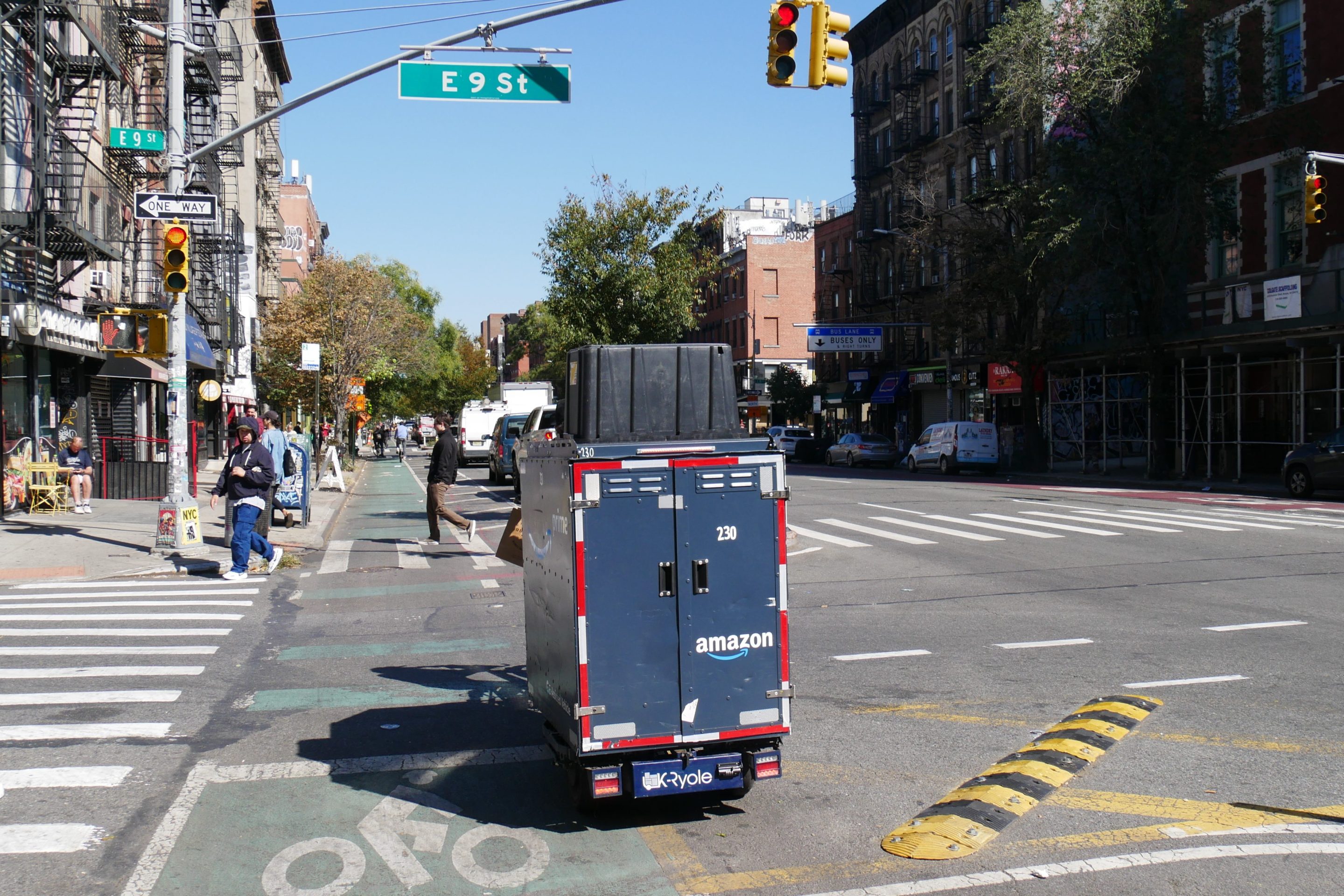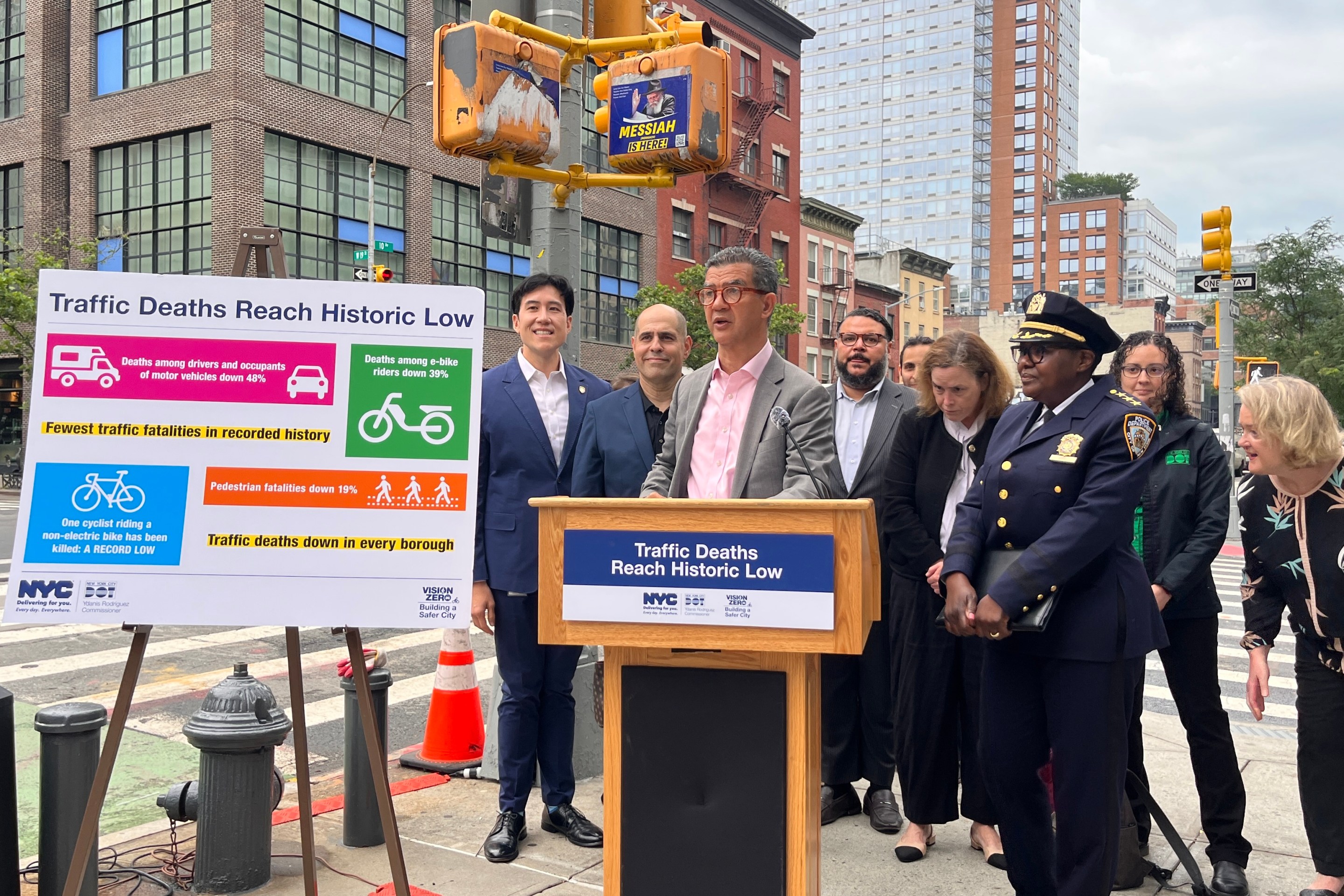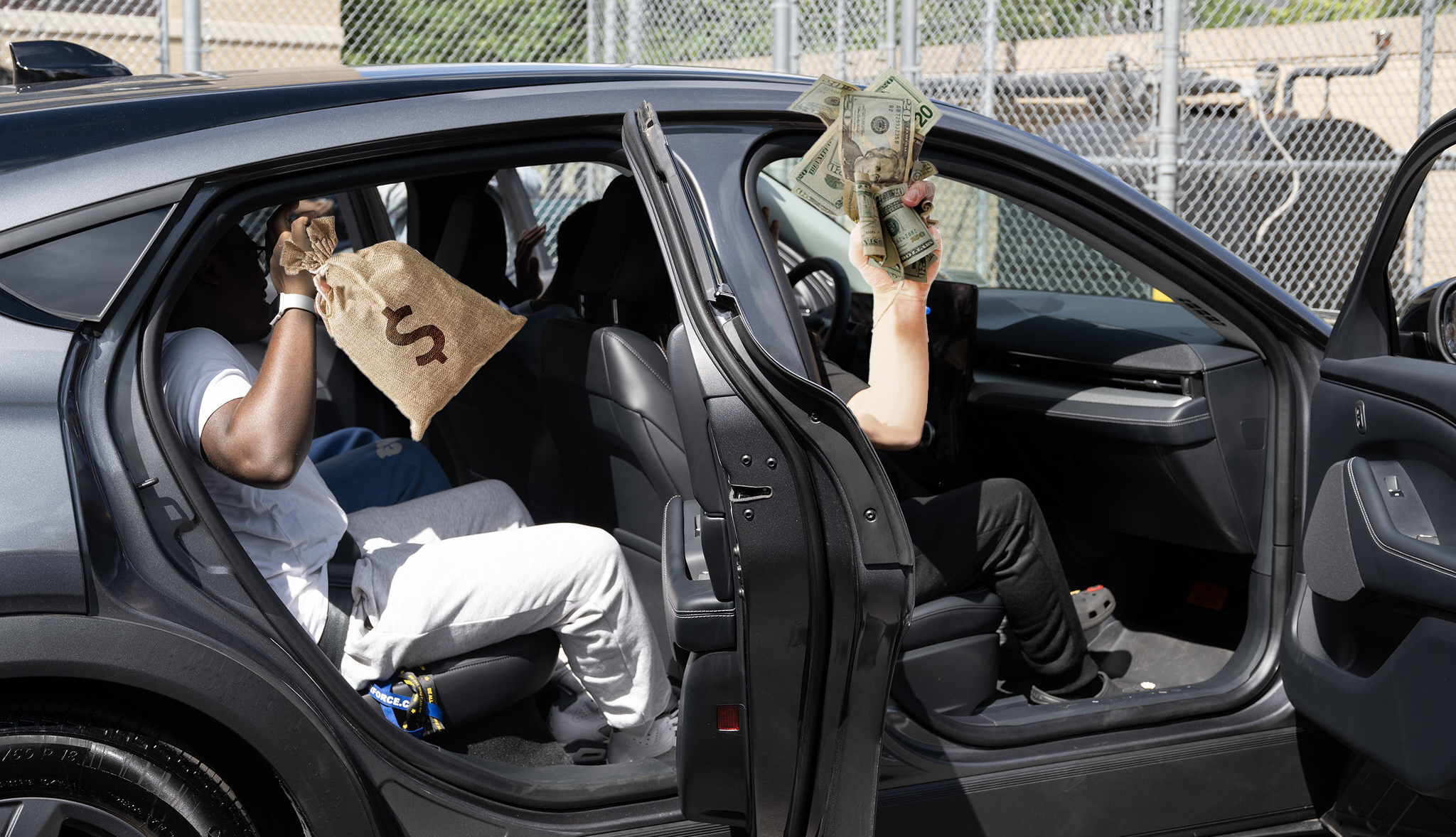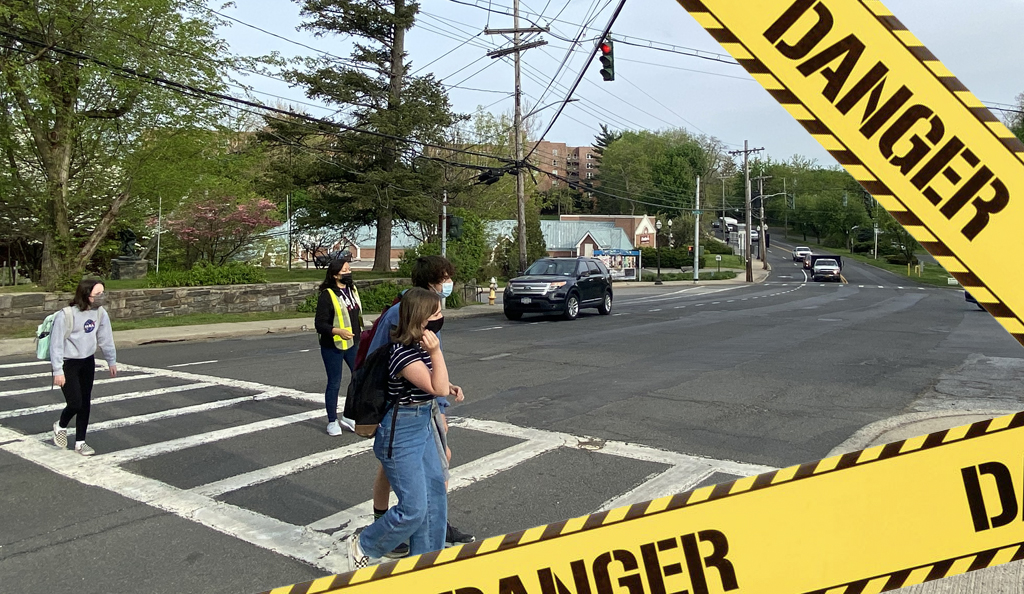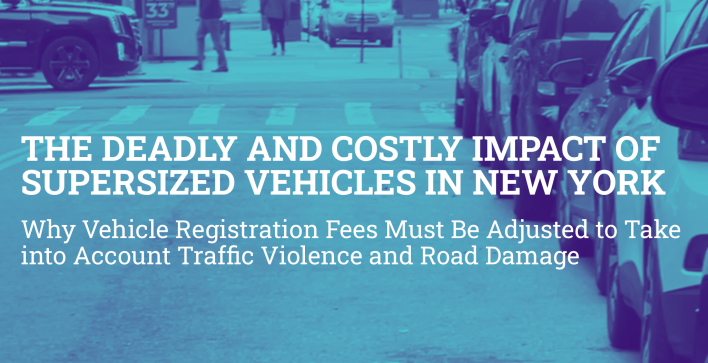
Death. Congestion. Costly road repairs.
So what's the upside of SUVs?
Injuries from crashes involving supersized cars increased in New York City by 91 percent and fatalities are up 75 percent between 2016 and 2019, according to a new report that highlights not only the rising road violence, but also the damage to roadways caused by America's ongoing obsession with exceptionally large cars and trucks.
And instead of back-tracking, America is charging forward (pun intended).
New report finds that over 8,000 pedestrians were killed on US roadways in 2022.
— David Zipper (@DavidZipper) June 22, 2023
Jimmy Carter was president the last time that happened.https://t.co/k6Lak5eZC3 pic.twitter.com/FuMwGTdFi1
"This is a nationwide crisis, but the federal government refuses to take the necessary regulatory steps to limit vehicle size and weight," the Transportation Alternatives' report, "The Deadly and Costly Impact of Supersized Vehicles on New York," states. "An influx of federal funding for electric vehicles is only accelerating the trend because, due to heavy batteries, electric SUVs and pickup trucks can weigh up to 40 percent more than their already supersized gas-powered counterparts."
Even before electrification, the weight of passenger vehicles has been rising: In 1980, the average weight of a car was about 3,200 pounds; now it's 4,200 pounds, an increase of 31 percent. And over the past two decades, the average weight of a pickup truck rose by 24 percent.
The pedestrian death crisis continues. What are our elected officials doing to rein in huge cars? (Answer: nothing.) https://t.co/vcZWKFKwJP
— Streetsblog New York (@StreetsblogNYC) June 22, 2023
Studies show that for every 1,000-pound increase in vehicle weight, there is a 46-percent increase in motorist fatalities. That gruesome statistic is borne out by the latest report on roadway fatalities: In 2022, as Streetsblog reported, more pedestrians were killed than in any year in more than four decades. And since 2010, there has been a stunning 77-percent increase in pedestrian deaths, rising at a rate more than three times faster than the rest of the traveling public, for whom fatalities increased 25 percent over the same period.

Advocates have urged the federal government to step in, but it has declined to alter its New Car Assessment Program
Transportation Alternatives reports that between 2014 and 2019, nearly half of the children killed on the city’s streets were struck by the drivers of SUVs or other large vehicles. In 2022, it rose to 80 percent. Such weights undermine efforts to redesign roadways because heavier vehicles strike people with fatal consequences at even lower speeds; plus, studies show that SUV drivers are far less likely to see kids.

The destruction is not limited to a human toll. A 6,000-pound vehicle causes more than five times as much road damage as a 4,000-pound sedan, the report says: "Road damage increases exponentially as vehicles become heavier, such that a GMC Hummer EV, weighing 9,063 pounds, will cause 116 times as much road damage as a Honda Civic, weighing 2,762 pounds."
Mega-vehicles also take up more road space. Since 2000, the footprint of a Toyota RAV4 grew 35 percent. The 2023 Hummer EV takes up 56 percent more roadspace than a 2008 Hummer H1.

The report's release on Friday coincided with the drafting of new legislation in Albany that would at least ask drivers to pay more for the damage they do to people and roadways. Currently, New York City residents do not pay an additional fee (beyond the statewide weight-based registration fees) for registering exceptionally heavy cars and trucks — though add-on fees in other counties are minuscule (in Albany County, for example, owners of cars and trucks heavier than 3,501 pounds pay just $5 per year in fees more than owners of lighter cars and trucks).
Bills by Assembly Member Zohran Mamdani and Sen. Andrew Gounardes seek to change that with paired bills (S6657/Assembly bill number to be determined) that would raise the existing by-weight registration fees to make them more likely to disincentivize the purchase of larger cars.
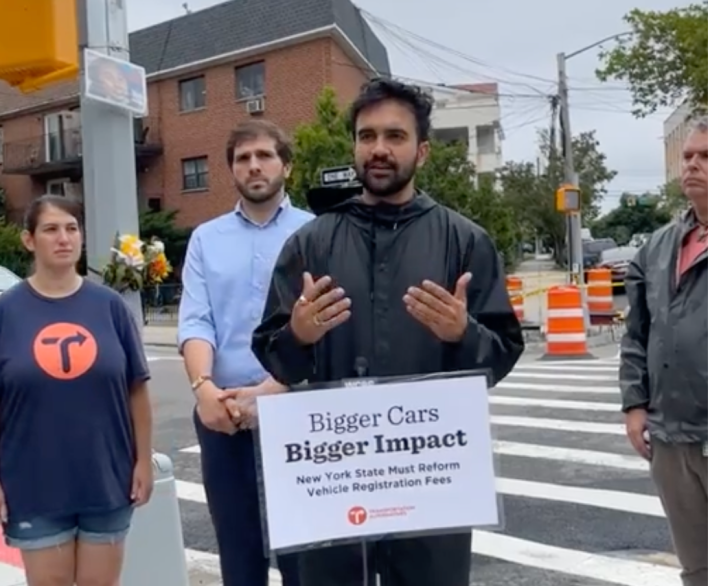
For example, currently, the registration fees on cars or trucks is low, and only rises $1.50 for every hundred pounds of additional weight. The bill would increasingly raise the fees on SUVs so that:
- SUVs and trucks at 5,001 pounds would be charged roughly $890 for two years, up from the current $93 for two years.
- An SUV or truck weighing 7,000 pounds would be charged $2,040, up from $140.
- SUVs and trucks weighting 8,000 pounds would be charged $3,040, up from that same $140.
In a concession to the electric car industry, however, 1,000 pounds of the weight of RVs would be subtracted from the above figures.

Mamdani and Gounardes held a press conference on Friday at the corner where 7-year-old Dolma Naadhun was killed by the driver of a massive Ford Explorer who ran a stop sign.
Both lawmakers were eager to highlight a major provision of the bill: some of the hiked registration fees would be set aside for street safety projects.
“This is an initiative to make our streets safer for our children,” Mamdani told Curbed. “And we are making sure a significant portion of this funding goes toward creating the very streetscapes that we know will save their lives.”
Gounardes also focused on the damage these "mini-tanks" can do, "literally pulverizing the road."
"We the public has had to bear the cost of people's decisions to drive these mini-tanks," he added.
At the press conference, Mamdani was asked why he expected a bill like this to pass in a legislature where Sammy's Law could not even come to a vote.
"We can't allow ourselves to become accustomed to accepting Albany's crumbs," he said. "We are introducing a bill that is necessary. This is common-sense legislation. We know there are increased costs associated with larger vehicles."
